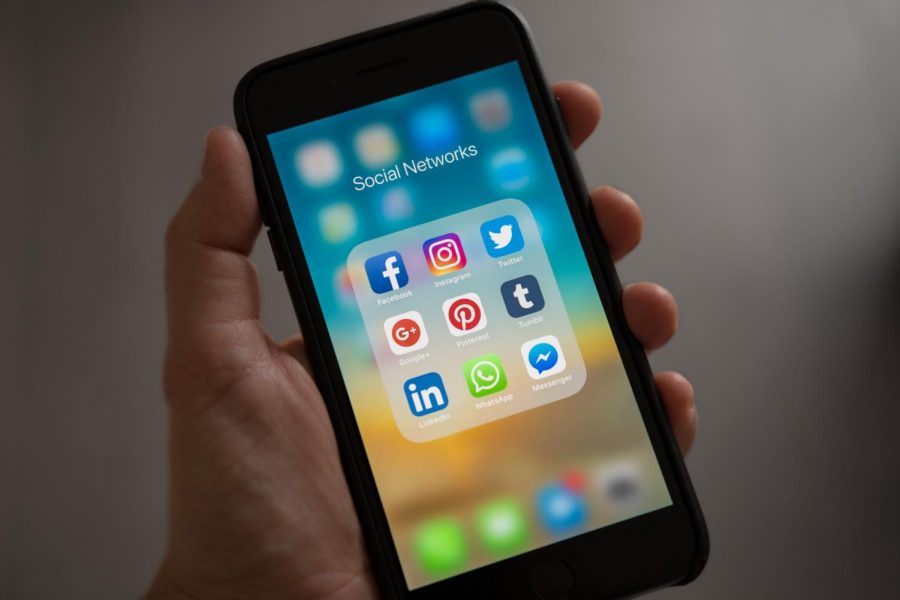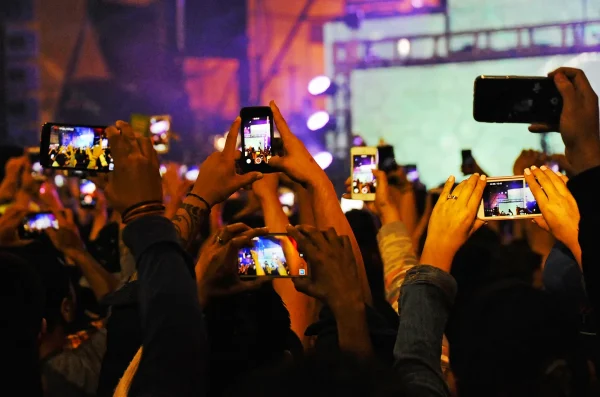Be social, get off of handheld media
Colin Horning discusses the importance of taking a break from media.
Mar 11, 2021
Everyone nowadays probably uses some form of social media. We live in a society where usage of social media has become so common and prevalent that for most people, it has just become a part of their daily lives and routines. Chances are at this point, the amount of people using platforms such as Twitter, Facebook, TikTok and others is probably at the highest level yet and will probably continue to grow throughout the coming years. That being said, there also is a growing trend amongst people, mainly younger people, that involves leaving social media platforms for the good of their mental health and other benefits.
Most people use their social media accounts as ways to see what is going on in the world around them, albeit through an application on one’s phone. It has the ability to bring an unlimited amount of content to your fingertips, and when utilized properly, can be quite beneficial to the user. When used as a tool, social media can be incredibly useful to both individuals and businesses alike. There also comes with quite a few downsides to using these products, many of which most people aren’t even aware of (or if they are, don’t seem to care that much about the effects).
One of these downsides to constant use of social media is the time spent on these platforms will add up over time. Think about it: if you spend 30 minutes a day on Twitter and Instagram each, and an hour total on TikTok, you’ve spent two hours of your day staring at a phone screen. This of course can also be to one’s benefit, if the content that they are seeing on their devices is actually informative and time is well-spent. For most of us, the time we spend online ends up just being wasted minutes and hours that we could have spent doing other productive things, and we don’t even realize how much time we have wasted before you sit down and analyze the numbers. Most smartphones nowadays are equipped with these features that show your screen usage, which is quite eye opening for me. I’m not saying that we all need to go cold turkey on our social media usage. Rather we should at least be aware of how much time we are spending.
Another negative to social media use that we should consider is how it affects ourselves mentally. Again, we don’t usually realize this in the moment, but spending a lot of time on social media can be awful for our mental well-being. Social media has often been described as one’s “personal highlight reel,” meaning that you’re only seeing someone’s handpicked moments and only what they want you to see. You never see people at their worst or at their lowest point on their feeds; it’s usually people having fun and showing off how much better their life is than yours. Upon seeing dozens of posts like these in a row while you’re staying at home scrolling through Instagram on the couch, it’s no wonder that many people believe that social media usage has a direct effect on mental health issues.
For myself personally, I made it a point to consider how much I really need to use these accounts. I don’t have a personal Twitter, I deleted my TikTok and Reddit accounts, and I rarely use Facebook. I do use Instagram and Snapchat fairly often, but those two platforms I try and keep to a minimum. As for the other social media accounts, I’ve found myself to be a lot happier when I’m not mindlessly scrolling through Twitter or TikTok videos. After all, there’s more to the world to see than what you see on your phone screen.

















